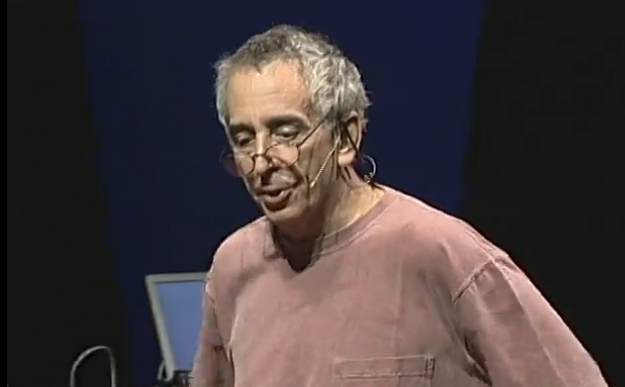You really want to get the decision right if it's for all eternity, right?
当你进入极乐世界时,你一定希望你做出的决定是正确的,是吗?
You don't want to pick the wrong mutual fund, or the wrong salad dressing. So that's one effect.
在那里你一定不想再选错互助基金,或者是沙拉调料。刚才那是第一个(负面)影响。
The second effect is that even if we manage to overcome the paralysis and make a choice,
再来说说第二个。即使我们通过努力克服了僵化和麻痹而终于做出了一个正确的决定,
we end up less satisfied with the result of the choice than we would be if we had fewer options to choose from.
我们对自己的做出的决定,反而不如可选性少时做出的决定更加满意。
And there are several reasons for this.
这里有几个原因。
One of them is that with a lot of different salad dressings to choose from, if you buy one, and it's not perfect
其中之一是,面对如此多的沙拉调料品种,如果你买了一种,觉得不尽如人意,
and what salad dressing is? It's easy to imagine you could have made a different choice that would have been better.
你很容易去想象如果你挑另外一种就好了。

And what happens is this imagined alternative induces you to regret the decision you made,
结果怎么样?这种想象中的另外选择引得你对你已经做出的决定感到后悔,
and this regret subtracts from the satisfaction you get out of the decision you made, even if it was a good decision.
这种后悔心情让你对你原先做出的选择的满意度打了折扣,即便那其实是个很不错的选择。
The more options there are, the easier it is to regret anything at all that is disappointing about the option that you chose.
选择越多,就越容易莫名其妙地对一些事感到后悔。这就是其一,总是不满意自己做出的选择决定。
Second, what economists call "opportunity costs."
其二,是经济学家称之为“机会成本”的东西。
Dan Gilbert made a big point this morning of talking about how much the way in which we value things depends on what we compare them to.
今天早些时候丹·吉尔伯特讲了个大道理,就是,我们看一个东西的价值,取决于那些我们用来作比较的那些其他的东西。
Well, when there are lots of alternatives to consider,
嗯,当人们有很多选择可以考虑时,
it is easy to imagine the attractive features of alternatives that you reject
就很容易去想象那些你放弃了的选择的吸引人的方面,
that make you less satisfied with the alternative that you've chosen. Here's an example.
这就使得你总是对你选中了的那个觉得美中不足。举个例子吧。



